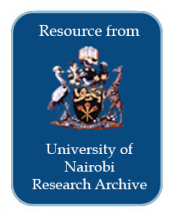/ library resources
Showing items 1 through 9 of 1217.Responsible Land Policy in Uganda (RELAPU) is a project implemented by the German International Cooperation (GIZ) and financed by the German Federal Ministry for Economic Cooperation and Development (BMZ).
Irrigation can help to improve and stabilise agricultural productivity, thereby contributing to food security and to resilience against climate change.
In an era of global warming, long-standing challenges for rural populations, including land inequality, poverty and food insecurity, risk being exacerbated by the effects of climate change.
Land tenure remains one of the most critical factors determining equity under REDD+, as we demonstrated through our previous article, ‘Roots of inequity: how the implementation of REDD+ reinforces past injustices”.
Most of the land in sub-Saharan Africa is governed under various forms of customary tenure. Over the past three decades a quiet paradigm shift has been taking place transforming the way such landl is governed.
Across the tropics, development banks and conservation donors are investing millions in property mapping and registration projects to improve accountability for deforestation.
The extent to which REDD+ initiatives should be a mechanism to address poverty and provide other co-benefits apart from carbon storage, is hotly debated.
The Kenya Government has over a number of years pursued policies geared towards the promotion of secondary towns. Included in this strategy is the achievement of an orderly and coordinated urban land development.
An information ecosystem is an extremely vast and cluttered space. What data exist? What data is up to date? What data is reliable? Who owns the data? Can I use the data without inflicting harm? Who are the data subjects?
Paginação
Land Library Search
Through our robust search engine, you can search for any item of the over 73,000 highly curated resources in the Land Library.
If you would like to find an overview of what is possible, feel free to peruse the Search Guide.




